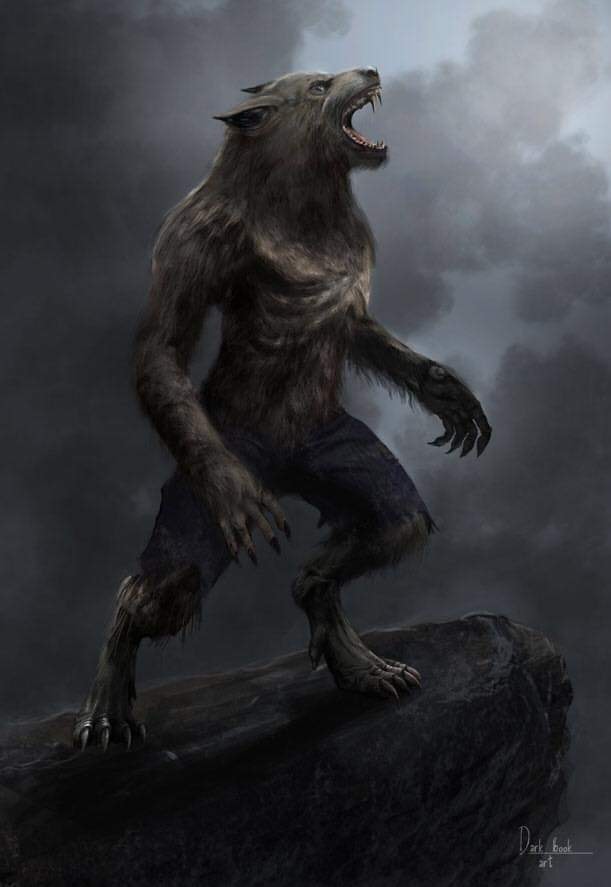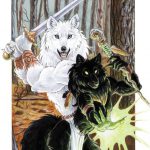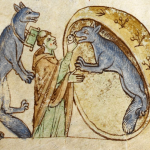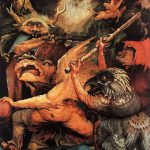Werewolf literally means man-wolf.
The name is thought most likely to derive from Old English wer (or were) meaning man (male man rather than gender-neutral) or possibly the Latin vir, also meaning man, masculine. It has cognates in several Germanic languages including Gothic wair, Old High German wer , Old Prussian: wirs, and Irish fear (pl. fir).

The second element is wlkwo- or wulf meaning simply wolf. The two elements joined thus yield man-wolf.
An alternative etymology looks to Old English weri (to wear) plus wolf, thus bearing wearer of the wolf skin. This was not the only word connected with were-wolves which helped on the superstition.
Other sources believe it is derived from warg-wolf, where warg (or later werg and wero) is cognate with Norse varg. The word vargr in old Norse had a double significance, it signified a wolf, and also a godless man.
A vargulf is the kind of wolf that slaughters many of a flock or herd but eats only a bit. This was a serious problem for herders as they had to somehow destroy the individual wolf that had run mad before it destroyed their entire flock or herd. They then used the wolf’s hide as a decorative ornament in the bedroom of a young infant, believing it to give the baby supernatural powers. Warg by itself was used in Old English for that specific kind of wolf (see J. R. R. Tolkien’s novel The Hobbit) and it was used as well for what would now be called a serial killer.








